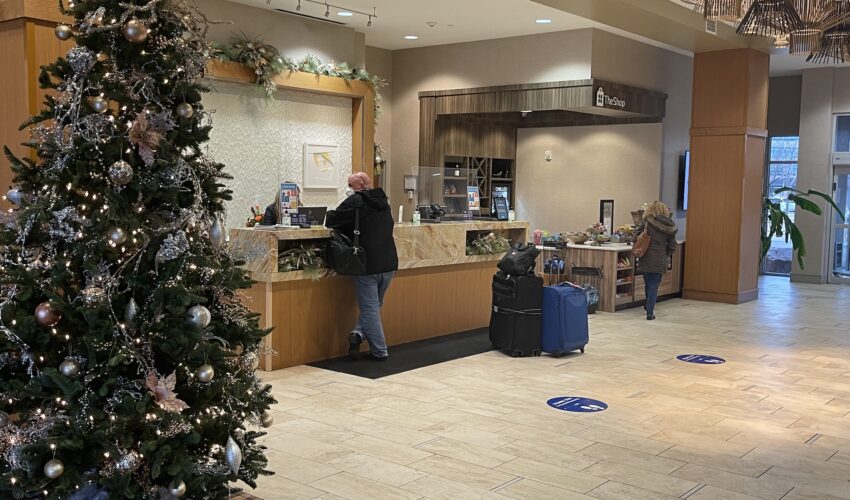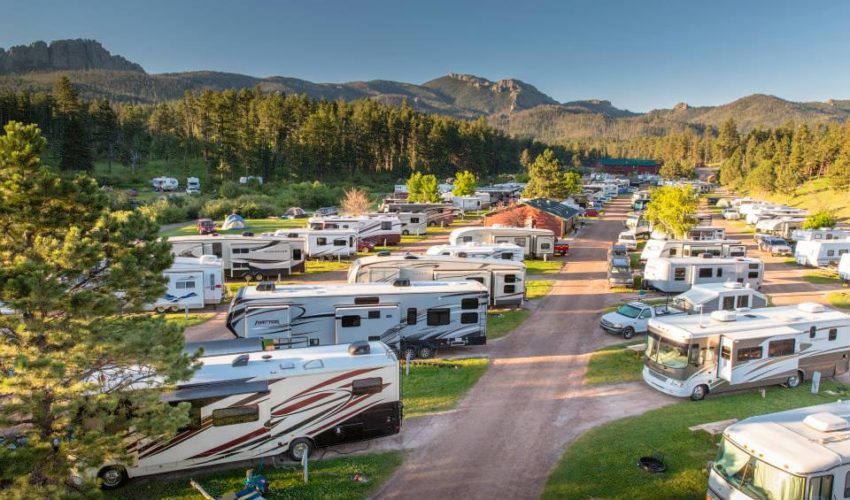Foreign workers support tourism industry in S.D. — if they can get here
By Patrick Lalley, for SiouxFalls.Business
The blunt truth, say several Black Hills business owners approaching the heart of tourism season, is they just can’t find reliable workers in the area.
The population base is not big, while the number of tourists is enormous. Regardless of your politics – and this tends to be a very conservative area – business is business.
If you can’t get the workers, it’s going to make it hard to make money.
Several South Dakota businesses use a federal program that allows for the hiring of seasonal foreign workers. The H-2B visa allows foreign nationals to fill temporary, nonagriculture jobs. The positions, including seasonal jobs, must meet several criteria to show demand.
The visa program works well for the South Dakota tourism industry, particularly in the Black Hills. But importing workers in the current political environment draws criticism from either side of the spectrum.
Business operators in the Black Hills say there’s a misperception that using the H-2B visa undercuts the American worker or opens the border to immigration.

The Rocket Motel in Custer uses foreign seasonal workers.
“It’s not that I want to cut out Americans, but I need you to work,” said Don Herren, who owns the Rocket Motel in Custer with his wife, Brenda.
Herren has brought in three workers from Jamaica each of the past seven years. The crew stays pretty consistent from year to year, meaning they are trained, they’re always ready and they do a great job, he said.
“These people are here to make money,” Herren said. “There’s no horsing around.”
The number of H-2B visas is capped at 66,000 a year. But under a one-year expansion of the program for fiscal 2016, Congress allowed returning workers from several previous years to not count against that cap. That likely tripled the number of visas available, though it’s likely the number of workers taking advantage of the expansion was not that high.
That expansion ended last year in September and was not renewed when Congress agreed on a short-term budget deal to carry the country through April.
And it wasn’t in the first version of the latest Continuing Resolution, the tool Congress uses to keep the lights of government on while it debates a more comprehensive package.
But when dust settled after a couple of weeks of wrangling, a modified version of the H-2B visa expansion was back. It’s not a done deal, however. The decision to expand is at the discretion of the Department of Homeland Security, rather than the Labor Department.
The 66,000 visas for the year were filled March 16, which meant that businesses with a later start date could miss out.
Help with hiring
Mount Rushmore KOA at Palmer Gulch has used 15 visas under the H-2B program the past several years to fill the housekeeping ranks. The reality, said general manager Mike Atkinson, is there aren’t enough people in the Black Hills willing to do the hard work of housekeeping.
“We’ve had the same crew for four or five years,” said Atkinson, whose workers come from Mexico. “They are proud of what they are doing.”
Palmer Gulch was one of the companies that got clipped by the deadline and didn’t get the full number of visas. Atkinson said northern locations are at a disadvantage because of later start dates. So he’s particularly interested in getting the number expanded.
Black Hills businesses have been in touch with the South Dakota congressional delegation, keeping track of developments. The expansion is good news, Atkinson said, but it still needs federal agency approval to open the process.
Reliability is a big issue for KOA, which has 175 total workers at its peak. Housekeeping is key in ensuring guests a high-quality resort experience, he said. The H-2B workers have a track record of excellence and pride of ownership.
“Excellence never happens by accident,” Atkinson said. “That’s what you’re getting when you bring in these folks we have been bringing in.”
Almost 1,200 visas were approved in South Dakota in 2015.
The pay for H-2B workers in the Hills is the same as anybody who walks through the door. The minimum is a bit over $9 an hour, with many returning workers making $12 to $15 an hour, plus overtime. Housing and transportation often are provided, meaning the compensation package is not the issue.
Ultimately though, it’s just hard work.
“It’s working great for me,” said Herren at the Rocket. “If I didn’t have it, I’d be hurting.”

The Game Lodge at Custer State Park has had luck hiring retirees in addition to foreign workers.
Regency Hotel Management, based in Sioux Falls, operates tourist destinations across the upper Midwest, including the Game Lodge at Custer State Park.
The company got the full complement of workers at the Game Lodge, which this year will be around 40. In past years, however, the company has brought in up to 100.
Tom Biegler, president and CEO of Regency, said the lodge has supplemented its ranks with retirees, which has allowed it to cut back on the H-2B. There are other visa programs for temporary workers – such as the J-1 for college students – but in those cases, the worker isn’t tied to the business and can switch jobs.
“We’ve been very fortunate,” Biegler said. “We’ve done really well with retirees.”
Visas help other occupations
While the tourism industry attracts the most attention in South Dakota, the biggest users on the east side of the state are construction and landscaping firms.
John Bedell, owner of H-Visa Solutions in Sioux Falls, is the only registered agent in South Dakota assisting firms with H-2B. Most of his clients are in construction. The restriction has hit that industry hard, said Bedell, a former investigator for the Department of Labor.
“Some of my clients in Watertown are freaking out,” he said.
Bedell processes 200 to 250 visas a year.
He’s hopeful the Department of Homeland Security will open the process because there aren’t enough workers in South Dakota, where unemployment is among the lowest in the country.
“Young people in South Dakota are going to college to get an education not to pick up a shovel,” he said.
The assertion that H-2B is undercutting workers in this area just isn’t valid, Bedell said. There just aren’t enough people who want to do these jobs.
“Give me your name and I’ll get you a job tomorrow,” he said.
There’s the catch, Atkinson said. It’s not the pay, it’s a mind-set.
“I can think of only a few American workers who are proud of the job they are doing in housekeeping,” he said. “They just don’t want to work that hard.”








